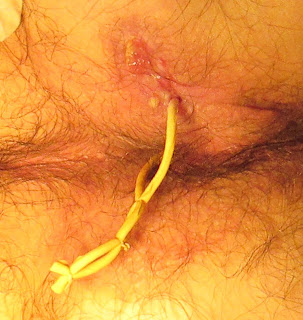European male, 36 years old, refers:
- Diagnosed lactose intolerant 10 years ago
- Diagnosed with celiac disease 2 years ago
- Diagnosed refined sugar and citric acid intolerance 1 year ago
- Diagnosed fructose, starch, yeast, intolerant 5 month ago
- Diagnosed lactose intolerant 10 years ago
- Diagnosed with celiac disease 2 years ago
- Diagnosed refined sugar and citric acid intolerance 1 year ago
- Diagnosed fructose, starch, yeast, intolerant 5 month ago
After starting with gluten free diet (2 years ago) he lost 12 Kg
He suffers from constant diarrhea or soft stools, with 2 to 6 bowel movements a day. The patient was on a gluten, lactose, fructose, refined sugar, starch, yeast free, citric acid diet. He only ate rice, meat, eggs and a few vegetables 4-5 times a day.
Main complaints:
- unfocused, lack of concentration
- weak, powerless
- irritability, especially to any unusual noise
- unable to gain weight
- multiple food intolerance (more strict than a gluten free diet)
- frequent headaches
- unfocused, lack of concentration
- weak, powerless
- irritability, especially to any unusual noise
- unable to gain weight
- multiple food intolerance (more strict than a gluten free diet)
- frequent headaches
When we received the patient at Newbery Medicine on the last week of March 2016 he looked very thin and remarkably weak. His weight was 58 kilos his height 1,80. The rest of the physical examination was normal.
We started treating him with Fecal Microbiota Transplants via colonic enema. He tolerated the procedure very well. We repeated FMTs during five consecutive days. By the end of the week he felt somehow more energetic. He noticed he was constipated, which was unusual for him. He took with him frozen implants to continue doing FMTs at home.
Evolution referred by the patient:
April 8: weight went up to 60 kilos, less headaches and more energy.
April 15: weight 61,5 kilos, tried potatoes and got diarrhea for the first time since starting with FMTs. Trying new foods in very small (almost microscopic) portions.
April 22: weight 61,7 kilos, no headaches, continue trying new foods. Less irritability, ate half a potato with no negative symptoms.
April 30: weight 62,4. Tried new foods with some "brain fog" and fatigue.
May 7: weight 63,2. Feeling much better. Only eating small portions of food remains without negative reactions.
May 21: weight 63,5. Ate more potatoes and no reaction.
April 8: weight went up to 60 kilos, less headaches and more energy.
April 15: weight 61,5 kilos, tried potatoes and got diarrhea for the first time since starting with FMTs. Trying new foods in very small (almost microscopic) portions.
April 22: weight 61,7 kilos, no headaches, continue trying new foods. Less irritability, ate half a potato with no negative symptoms.
April 30: weight 62,4. Tried new foods with some "brain fog" and fatigue.
May 7: weight 63,2. Feeling much better. Only eating small portions of food remains without negative reactions.
May 21: weight 63,5. Ate more potatoes and no reaction.
One month without FMTs as I am traveling.
July 8: weight 69 kilos (11 kilos above the weight when FMTs started). During my trip I tested many new foods and most of them felt good, I had a couple of days with some loose stools. My chronic fatigue is gone and my fear to fly is also gone. Altogether I think FMTs are working very well.
More information, please contact info@newberymedicine.com or visit www.newberymedicine.com
More information, please contact info@newberymedicine.com or visit www.newberymedicine.com










